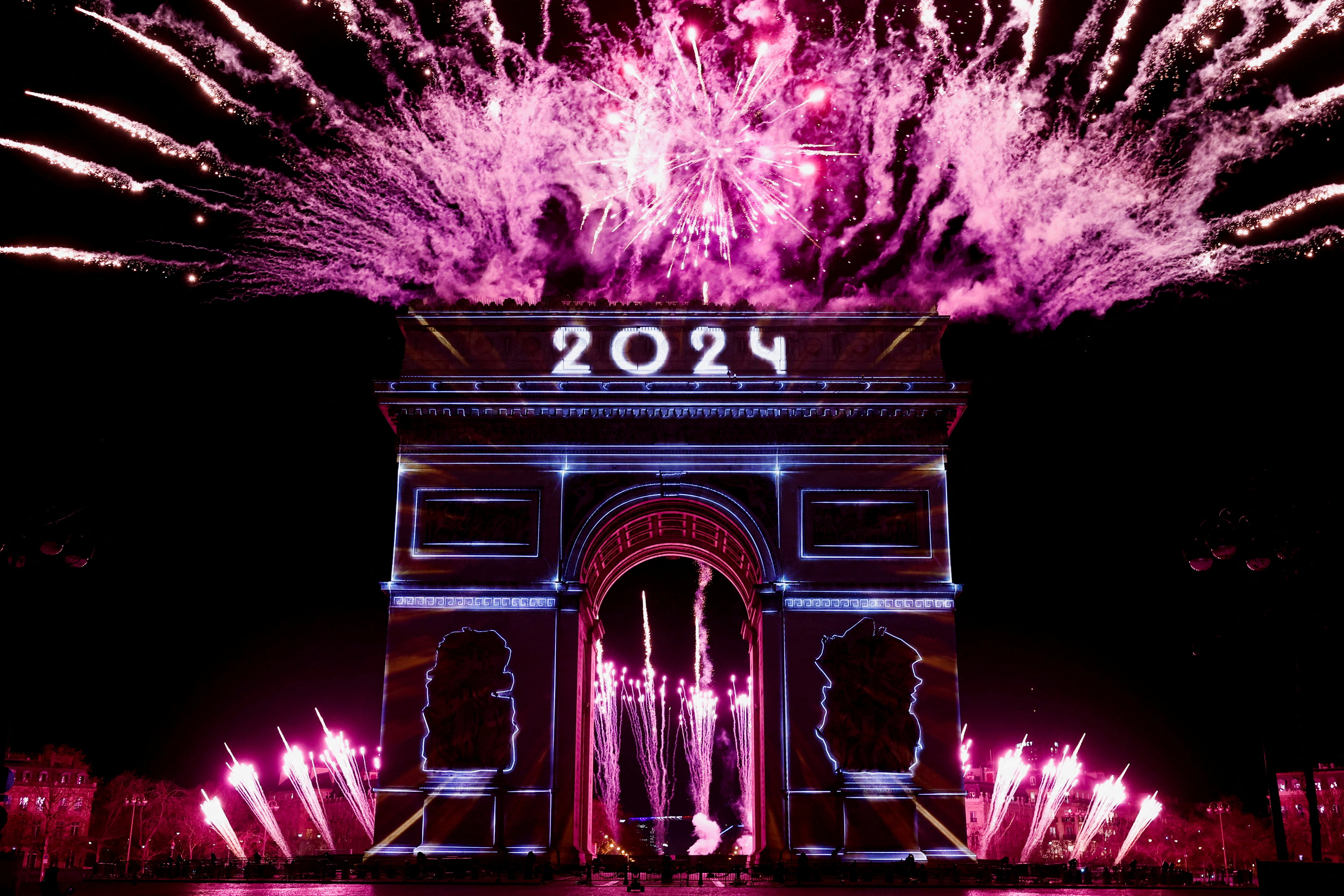All the ways in which 2023 became the year that time forgot
A new song by The Beatles went to number one, the Rolling Stones topped the charts and Wham! were Christmas number one with a song recorded in 1984, writes Marc Burrows. But given the horror of the present, is it any wonder we’re turning to the nostalgic, halcyon past?


We’ve just said goodbye to 2023: the year that time forgot.
A new song by The Beatles went to number one. The new Rolling Stones album topped the charts. Wham! were Christmas number one with a song recorded in 1984. Their main competition was from Sam Ryder’s cynical attempt to mash up every British festive hit of the last half-century in the hope that pop history can be made by algorithm.
In 2023, David Tennant was playing the lead in Doctor Who. In 2023, Taylor Swift’s 1989 was one of the biggest records of the year. In, 2023, the most popular movies of the year were about a 70-year-old doll and a 40-year old video game.
There was also a Fast and Furious movie (franchise established: 2001) and a Mission:Impossible movie (franchise established: 1966). Disney had a hit with The Little Mermaid (original script and music written: 1987). The hottest gigs of the summer? Pulp and Blur. Guns N’ Roses and Elton John headlined Glastonbury. Everyone’s excited about Robbie Williams and Girls Aloud touring this year.
The news dominating the headlines at the end of 2023 included the war in Israel and Palestine, the war in eastern Europe, The Troubles. It was 2023 and it was also 1967, 2008, 1984, 2010, 1989. It is now the roaring 20s and it’s the mid-noughties. It’s often commented that history is a flat circle. It has never been more true.
We were supposed to be living in the future by now. We were promised utopia. We should have been on the moon. We were promised jetpacks. But 2023 was, instead, the year that time ceased to have meaning. There was an episode of Doctor Who from about 10 years ago, where time itself breaks: Winston Churchill and Charles Dickens, the pyramids and space-age monorails all exist at the same time — that’s what 2023 felt like. A closed loop. No future; just an endless cultural circuit, rehashing the greatest hits of the last century or so.
It’s not that new music, new films, new art, new ideas don’t exist. They absolutely do, if you know where to look. But something in our mainstream collective wanted to look backwards. Look toward comfort, or nostalgia. Look to a time when things felt different, more familiar. Less bleak.
If you’ve got a news app on your phone and haven’t disabled the notification function then you’ll understand. You’ll be familiar with news alerts on deaths, assaults, updates on casualties in Gaza, or “new” (old) government policies. If you’re anything like me, you’ll roll your eyes at the so-called “culture wars”, constant online “discourse” and everything Elon Musk says and does.
We’re bombarded with information, every waking hour. We know what’s happening everywhere, yesterday, today, tomorrow. Telly on in the corner, laptop on the coffee table, phone in our hands: a triple threat.
We’re connected to everybody, every single person we’ve ever met, at all times. We know what they want, and they know where we are. We know the climate crisis could kill us, and the steps we need to take as a society to prevent that, but instead we go to bed and look at a device and three hours go by, and all we’ve done is absorbed content.
With so much horror in 2023, is it really any wonder that we’ve been taking shelter in the art of the past? That the Beatles singing in harmony is soothing, that Wham!’s “Last Christmas” reminds us of better times, or that it’s such a joy to see David Tennant and Catherine Tate dashing around in the Tardis?
It can’t be that surprising that we’re trying to recapture how we felt the first time we danced to “Shake It Off” or played Mario on the N64. It’s not surprising that we’re clinging to comforts from decades we might not even have experienced. We’re channeling escape from the graphic relentlessness of The Now. The “present” is far more a burden than it is a gift.
To my mind, this isn’t a cultural trend; it’s a coping mechanism. And it’s not necessarily a bad thing. One of the purposes of culture is nourishment and recharge. When things overwhelm us, it helps to reach for something from a “purer” time. A time we’ve already survived.
We go back to that well to recharge ourselves... for a little holiday from our reality and to give us a reminder of what has been and could be. It’s a survival instinct and a way of finding the path again.
And in that sense, what we find in the art of the past — is hope for the future. Happy (I hope) new year.






Join our commenting forum
Join thought-provoking conversations, follow other Independent readers and see their replies
Comments